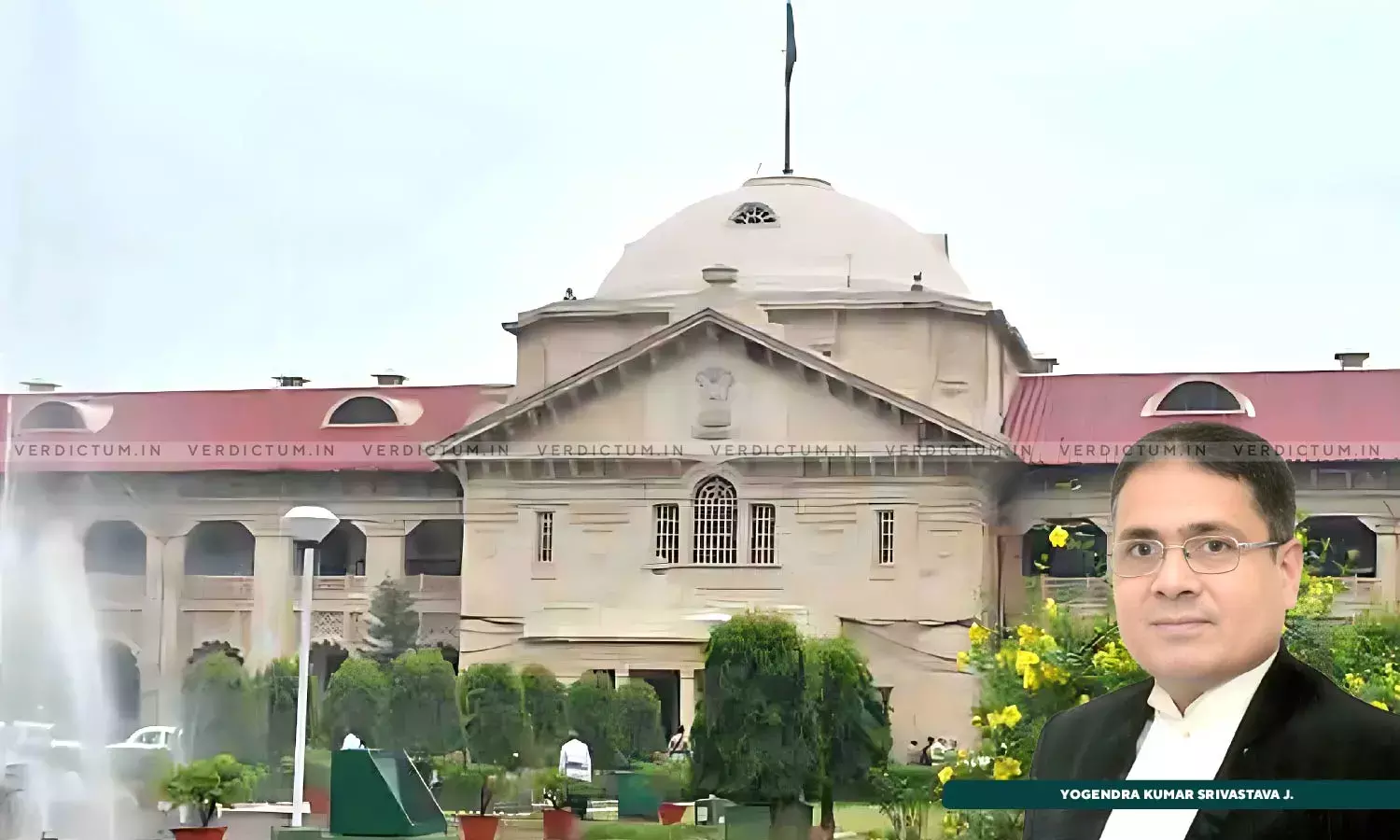Cognizance Of Complaint For Dishonour Of Cheque Can Be Taken When It Is Filed Within One Month Of Cause Of Action: Allahabad HC
The Allahabad High Court reiterated that a court can take cognizance of an offence under Section 138 of the Negotiable Instruments Act, 1881 (NI Act) when a complaint was filed within the prescribed period of one month from the date on which the cause of action arose.
A complaint was filed under Section 138 of the Negotiable Instruments Act, 1881 (NI Act) as a result of a cheque drawn by the petitioner being returned unpaid by the bank due to insufficient funds in the account.
The Court held that “the summoning order and the order passed in the revision, therefore, cannot be faulted on the ground of limitation.”
A Single Bench of Justice Yogendra Kumar Srivastava observed, “A conjoint reading of the aforesaid provisions would indicate that a complaint under Section 138 can be filed within one month of the date on which the causeofaction arises under clause (c) of the proviso to Section 138, which happens as soon as the drawer of the cheque fails to make payment of the cheque amount to the payee or to the holder in due course of the cheque, within fifteen days of the receipt of the notice required to be sent in terms of clause (b) of the proviso to Section 138 of the N.I. Act.”
Advocate Surendra Prasad Mishra represented the petitioner, while AGA Pankaj Saxena appeared for the respondents.
The Court examined the three conditions in the proviso to Section 138 of the NI Act, which must be met in order for the dishonour of a cheque to constitute an offence:
- the cheque must be presented to the bank within six months from its issuance or within its validity period;
- the payee or holder must issue a written notice to the drawer within thirty days of being informed of the cheque's return;
- the drawer must fail to make payment within fifteen days of receiving the notice.
The Court stated that Section 142 of the NI Act started with a non-obstante clause which stated that a court cannot take cognizance of any offence punishable under Section 138 except upon a written complaint made by a payee within one month of the date on which the cause of action arose. Therefore, a court can take cognizance after the expiry of one month from the date of accrual of the cause of action.
The Court remarked, “The causeofaction having once arisen, under clause (c) of the proviso to Section 138, the payee or the holder of the cheque acquires the right to institute proceedings for prosecution under Section 138 of the N.I. Act, and the said right remains legally enforceable for a period of one month from the date on which the causeofaction has arisen.”
The Court explained that the petitioner had 15 days' period to make the payment of the amount from the date of receipt of notice and the cause of action for filing the complaint arose at the same time.
Accordingly, the High Court dismissed the petition.
Cause Title: Sudesh Kumar v. State of UP & Anr. (Neutral Citation: 2024:AHC:38337)
Appearance:
Petitioner: Advocate Surendra Prasad Mishra
Respondents: AGA Pankaj Saxena and Divya Ojha




